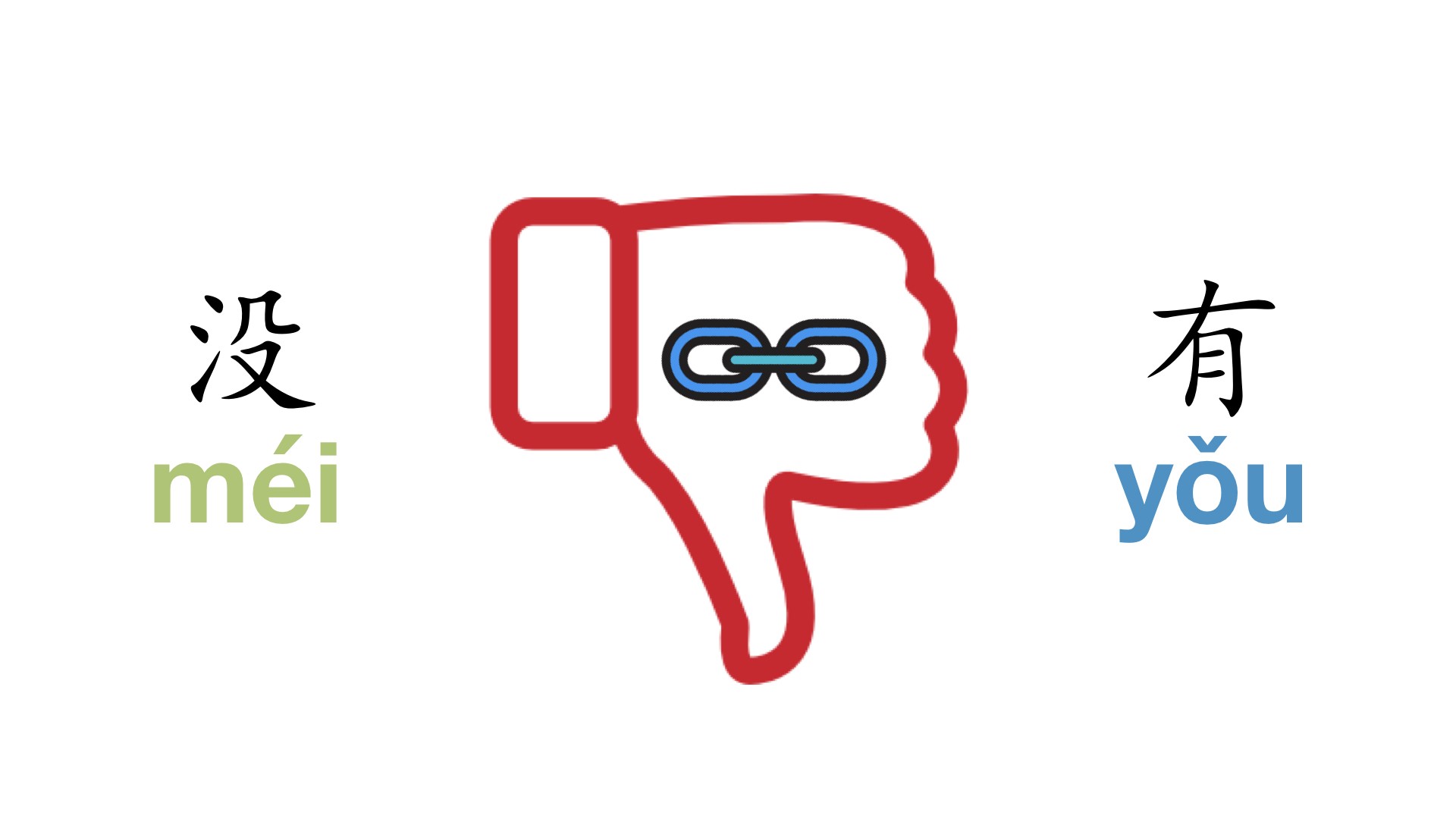“I Didn’t Do That!”: How to Use 没有

How to Use 没有
We’ve talked all about how 不 bù is used to negate things (i.e. 不怕 búpà – not afraid, 不是 búshì – is not, etc), but 没有 méiyǒu is a special case where we do not use 不.
Break Down the Characters

First, let’s just look at the two characters in the word itself. The character 有 yǒu means “to have”, and it is special for a number of reasons, but for now just know that the main reason it is special is that it is never negated by 不,only by 没. If the main verb in the sentence is “有”, then even if you are talking about the present tense, you will still negate 有 with 没. This rule is easy enough, and you will notice it quite quickly, but there is another usage that you really want to look out for.
“I Didn’t Eat” VS. “I Don’t Eat”
The whole word 没有 méiyǒu (or simply “没” by itself) can be used to negate actions in the past. In this case, the whole word is negating whatever action comes after it, as opposed to the above case where “没” was negating “有”.
For example, if you say “我没有吃饭 wǒ méiyǒu chīfàn”, the word 没有 is negating the action “to eat” 吃饭 to create the meaning “I didn’t eat”. The 没有 indicates that the negation is happening in the past. 不 negates things where the time is either not specified, related to the future, or is simply a constant state. Take the same sentence, but replace “没有” with “不“ and the meaning changes entirely. “我不吃饭” wǒ bù chīfàn is grammatically correct, but it means “I don’t eat”. Not very likely to be alive very long if that sentence is true!
Keep it Simple
An easy way to remember that 没有 is about the past is to think of it like the English contraction “didn’t” when used in this context. “Didn’t” comes before an action (e.g. “I didn’t eat” or “I didn’t perform surgery on that horse”), and just like how you could directly respond with “I didn’t” in English, if you some asks “你吃饭了吗? nǐ chīfàn le ma? Did you eat?”, you can directly respond with just 我没有 wǒ méiyǒu or simply 没有.
Examples of 没 Negating 有 in a Sentence
- 我没有钱 wǒ méiyǒu qián– I don’t have money
- 她的妈妈没有马 tāde māma méiyóu mǎ– Her mom doesn’t have horses
- 爸爸没有可乐 bàba méiyóu kělè– Dad doesn’t have cola
- 我的妈妈没有鱼 wǒde māma méiyǒu yú– My mom doesn’t have fish
- 你没有选择 nǐ méiyóu xuǎnzé– You don’t have a choice
Examples of 没有 or 没 Negating a Separate Verb in the Past
- 你没有吃饭吗?nǐ méiyǒu chīfàn ma?- You didn’t eat?
- 我没去 wǒ méi qù– I didn’t go
- 她没有抽烟 tā méiyǒu chōuyān– She didn’t smoke
- 爸爸没有走 bàba méiyóu zǒu– Dad didn’t leave.
- 妈妈没有在– māma méiyǒu zài– Mom wasn’t there.








